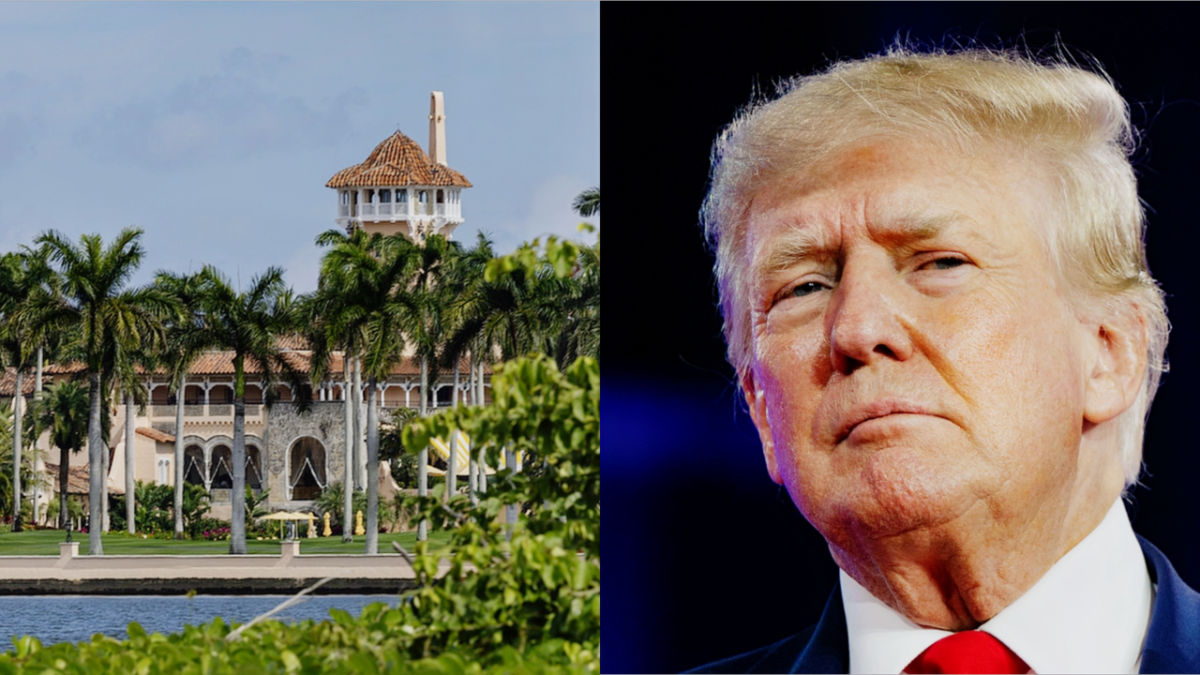JUST IN: Judge Orders Release of Redacted Mar-a-Lago Raid Affidavit

L: Joe Raedle/Getty Images, R: Brandon Bell/Getty Images
U.S. Magistrate Judge Bruce Reinhart has ordered the release of a redacted version of the affidavit used to obtain the search warrant for former President Donald Trump’s home at Mar-a-Lago.
A coalition of media outlets, including the Wall Street Journal, Miami Herald, CNN, CBS, and NBC, filed a motion supporting the release of the affidavit that had been submitted by the FBI to Reinhart in support of their warrant request, arguing that the “public has a ‘clear and powerful’ interest in understanding the unprecedented investigation in former President Donald J. Trump’s handling of classified records.”
The Department of Justice responded with its own motion objecting to the affidavit’s release, saying that it “would serve as a roadmap to the government’s ongoing investigation, providing specific details about its direction and likely course, in a manner that is highly likely to compromise future investigative steps,” further citing the involvement of “highly classified materials” as a factor that “further underscores the need to protect the integrity of the investigation and exacerbates the potential for harm if information is disclosed to the public prematurely or improperly.”
Last Friday, Reinhart heard arguments related to these motions and ordered the DOJ to submit a redacted version of the affidavit by noon ET today, Thursday, at which time he would review the proposed redactions, possibly suggest his own redactions, hear arguments from the parties, and rule what must be released.
That process has now been completed, with Reinhart issuing a Order to Unseal Thursday afternoon, instructing the DOJ to “file in the public docket a version of the Affidavit containing the redactions proposed in ECF No. 89-1,” a reference to the court document containing the approved redactions, no later than noon ET Friday.
In the two-page order, Reinhart stated that the DOJ had met its burden to continue to keep its requested sections of the affidavit under seal:
I find that the Government has met its burden of showing a compelling reason/good cause to seal portions of the Affidavit because disclosure would reveal (1) the identities of witnesses, law enforcement agents, and uncharged parties, (2) the investigation’s strategy, direction, scope, sources, and methods, and (3) grand jury information protected by Federal Rule of Criminal Procedure 6(e).
Based on my independent review of the Affidavit, I further find that the Government has met its burden of showing that its proposed redactions are narrowly tailored to serve the Government’s legitimate interest in the integrity of the ongoing investigation and are the least onerous alternative to sealing the entire Affidavit.
“The United States has filed a submission under seal per the Court’s order of Aug. 22,” Justice Department Spokesman Anthony Coley told CNN. “The Justice Department respectfully declines further comment as the Court considers the matter.”





Comments
↓ Scroll down for comments ↓